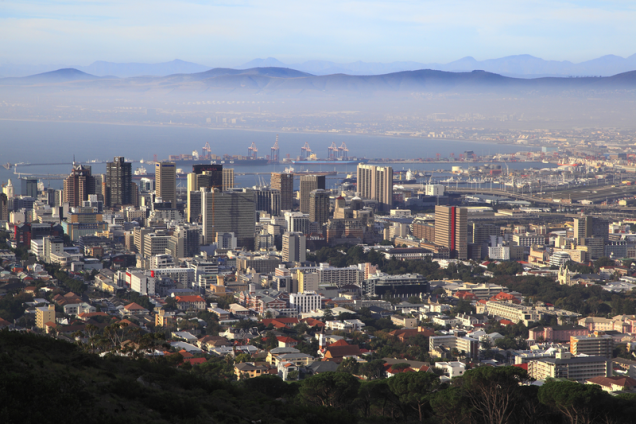I didn't expect to fall in love with South Africa. Before my visit I had a mostly negative image of the place, stitched together from memories of apartheid from my youth, the occasional homophobic remarks of current President Zuma, and the haunting photography of Pieter Hugo.
At first, Johannesburg did little to correct that impression. I arrived at the dead of night, when most of the city seemed to be huddled behind high walls topped with razor wire.
Daytime was different, however: there were jacaranda trees and dusty streets lined with improvised art galleries and second hand bookstores. Alternatively, for those who like that kind of thing, there were pristine shopping malls.
But it was in Cape Town that the magic really began to operate. I strolled the promenade at Sea Point amid a misty sunset and the almost overwhelming odour of the ocean, which was crashing in explosions of spray against the rocky beach. Hipsters with headphones jogged and roller - bladed through the orange haze. The Lion’s Head mountain loomed above us. Surely, I thought, this must be one of the world's most inspiring cities. I imagined it to be a hive of creativity.Well, yes and no.
One of the people I met during my trip was Herman Manson, founder and editor of local online advertising journal Mark Lives. For this column I asked him which city was the most creative: Cape Town or Johannesburg? «Jozi and Cape Town are two very different cities in terms of culture and vibe», he told me. «Cape Town has traditionally been seen as the more creative of the two – mainly because it’s home to a host of smaller, creatively-orientated agencies.» But Johannesburg is the country’s economic motor – and it powers the creative economy too. «Jozi is where most business is done and its agencies are often seen as being more business orientated.»
Herman feels that Cape Town’s perceived creative edge is being eroded:«Possibly because of the nature of advertising today, which puts a premium on effectiveness rather than creative awards, in which Cape Town’s agencies have traditionally punched above their weight.» I wondered if there was a fierce rivalry between the two cities, like the one between Barcelona and Madrid. But Herman said the relationship was a cordial one. «Most Cape Town agencies do business in Johannesburg and most of their clients and revenue are derived from that city. The two cities are only separated by a two hour flight, after all.»
Uncertain times
Another one of my South African pals is Carmen Murray, head of sales and marketing for a mobile advertising company called Mobitainment. «I’m a Jozi girl, so of course I think Jo’burg is more creative», she joked. More seriously, she believes South Africa’s tentative relationship with the digital world has driven innovation across the board.
Only about 49% of the population can access the internet, and although most people have a phone, only half of those are smart phones. One South African advertising solution is based on a technology called Please Call Me, with which people who’ve run out of prepaid talk time can text a friend for free asking them to call back. Advertisers add a short message offering insurance, in-store discounts and so on.
«Technologies like this are being adopted globally by developing markets», said Carmen. «We’ve embraced the entrepreneurial spirit, and I think that inspires a lot of the creativity you see coming out of South Africa.»
If you follow the international news, you’ll know that South Africa’s economy has taken a beating. I asked Herman how that had impacted creativity. He told me that budgets were being squeezed and a number of big clients had shifted their accounts in the quest for better return on investment.
But he said: «Uncertain times make the brave stand up and push harder. A host of new start-up agencies – many of them led by a new generation of black creatives and executives – is particularly exciting to watch, as is their usurping of what creativity actually represents in advertising and marketing.»
A number of recent ads have focused on ordinary South Africans rising above poverty and limited access to education to beat the odds and build their own future. «Not by hitting a lotto jackpot but through sheer will, resourcefulness and hard work.»
Carmen agrees: «We’re seeing more and more brands focusing on empowering their consumers.»
As South Africans conclude that they can no longer trust the government to deliver services or a corruption-free infrastructure, Herman applauds agencies who are making a positive contribution. «It's going to require creative thinking to address the issues we face as a nation.»
South Africa has transformed itself before – and the resilience of its people is just another reason to love it.




